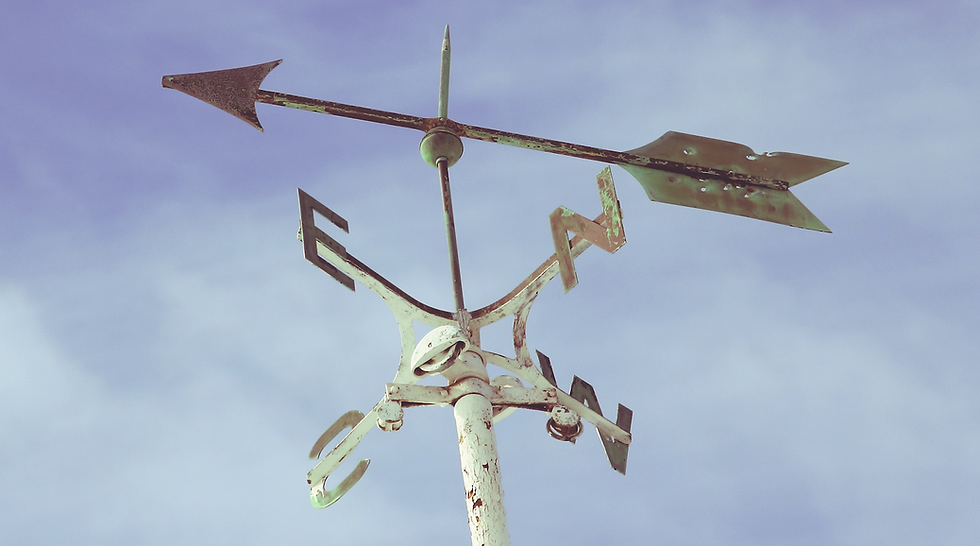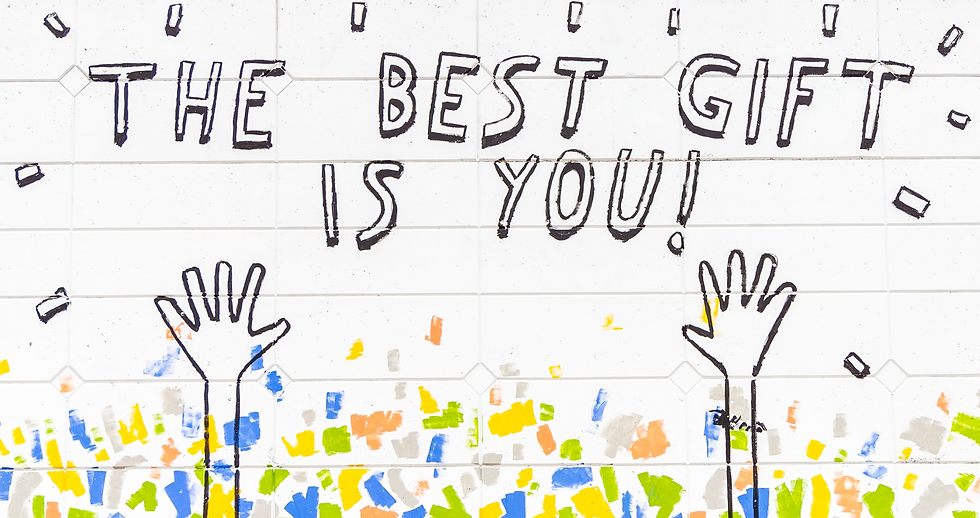Being Found: a reflection on EOLD practice-building
- Dina Stander

- Feb 12, 2023
- 6 min read
Updated: Feb 13, 2023

My new client has a globe-spanning career dismantling patriarchy in places most people never visit. They also have a rare cancer and a terminal prognosis and have already outlived their odds. Their allotted time is ten months or ten years, who knows…? One learns to live with uncertainty. So we talk about where they are traveling next week in the same minute that we talk about clinical trials and then segue into who will wipe their brow before their last breath. A conversation on Zoom in which even the trivial is consequential and we find ourselves sharing a genuine belly laugh over all of it. We make a plan to talk again in two weeks. Meanwhile, they will go about living.
I come away feeling humble, and so grateful for my understanding of the 3-C's of doula care. Conversation. Comfort. Companionship. This is where I center my heart when I enter into relationship with a new person. I ask “how can I help?” and then lean in and listen. A story spills out of them. Sometimes I have to ask them to slow down, take a breath, and reflect for a moment with me on what I understand so far. And then we continue.
Not all my clients are as worldly or as articulate about their life journey. This week I also met with a neighbor whose father, a string instrument maker, is swiftly dying in the one-fell-swoop aftermath of a stroke. I will support their family in grieving and help them conduct a fitting memorial. The son, an engineer and farmer, meets me in their driveway for a hug. It is goat-kidding season but he's been on the road back and forth to the hospice residence across the state. We hold our embrace for a long time, many breaths, a sigh. We release and then hug again, staying long enough for tenderness to reach all that is unspoken. Because, when your dad is dying and everything is coming loose in your heart it is good for someone to be willing to hold you up for a bit, to share being grounded with you.
One aspect of the business-end of building an EOLD practice is that you have to give thought to how people will find you. The first client I mentioned found my website. Based on their impression of shared values they wrote to me asking to meet. The second client found me by way of community proximity and word of mouth. Years ago my middle daughter babysat his children. I know where to visit frisky baby goats and he knows where to find grief support. Both stories are typical of how 'my' people find me.
When I first started my end-of-life care practice as a funeral celebrant I took a business course. I gave too-serious thought to what image I wanted to project and advice about places to broadcast my message from. I fretted over how to let people know I am here. Other colleagues seemed more busy, but live in urban markets where there is simply more business to be had. Sometimes when I heard about a memorial service in my own neighborhood I would fret over why they had asked someone else to preside. Over time what I learned is not to fret. To be myself. To keep talking to people about what I offer. And to show up for the work with my whole heart when the work comes to my door.
To be honest, the growth of my practice over the last 15 years has been economically slow and spiritually exponential. Despite the conundrum of how to make a living in death work, I do see myself as successful. The strategy inherent to my recipe for success that is most impactful, and that any one can try, is being myself.
This can be a tall order when you're trying on the garments of a new-to-you profession. We learn early in life to code switch between our home-self and our public-self(s). Being myself in service to the diverse needs of clients facing end-of-life has called me to develop a core self, integrating my home and public faces. I can still compartmentalize, but I bring so much more authenticity to my work roles when I am at ease in my own skin. Because I am not trying to show what I am, I am being who I am. I haven't found words yet for the inner physics of this, but I am certain that the more I am able to be myself in my work, the more easily 'my' people are able to find me. And the people who are not drawn to what I have to offer cruise on by and find the provider who fits right for them.
There is one exercise from the practice-building business class that continues to bring in more clients over time. Periodically revisiting this question: who is your ideal client? My answer to this query has become distilled over time, informed by the diverse needs and backgrounds of who these folks are. There are people I would never have included in my 'ideal client' image when I first began. But the families who find me and don't fit my ideal have transformed how I perceive my work and who I attract to my practice. For me, the question at the heart of being found is: who do I make myself available to?
My idea of the ideal client has evolved, along with my understanding of my purpose in developing an end-of-life care practice. I stopped thinking in terms of where my people live or what they do or how they play. I stopped thinking my clients should share my values, and true thing - some of my favorite people have lived their lives in a different social bubble and political reality from mine. And yet, making myself available to them in their time of need has made a difference in the way they left this world.
Here's the thing. Be yourself, not the role. Your people are going to sense the possibility of relief when you connect with them. You will see it happen, an ease that settles in their posture. Your willingness to be yourself in the presence of death is how they will know you are the right companion for their journey. Being found is not about advertising in the right place (although that helps) or the free workshops you give at the library (this helps more). It is about the deep breath a client takes when they connect with you and feel seen and heard and supported. There is no advertising or underwriting that can convey the power of this.
OK, so what does being myself look like? It will of course be different for me than for you. For me being myself meant stopping along a dirt road in the woods on the way to that hug with my neighbor. I pulled over in a place where there is a path that leads to a rushing brook that flows through a series of waterfalls. If you send a thought on its way with the water it is carried to larger tributaries and finally to the torrent of a great river that travels to the sea. A river that comes from the north where the instrument maker's workshop is silent and still. I stop here often to talk to the trees that shelter my comings and goings. This day I asked them to carry a message up the root line to the north country and down the river to the sea that a beloved father's death journey has begun. Informing the trees, kind of like the old beekeepers tradition of 'telling the bees' when their keeper has died, is a little bit of doula woo woo that keeps me grounded and calm. I rarely tell my clients I have stopped in the woods this way. Its just me, being myself.
If you tell a friend a story about these moments of connection in your doula practice, about helping someone whose last journey was better with your company, they will think of you when death draws near in their own circle of community. The stories you tell about your work are seeds you plant on behalf of your practice. Over time there will be seasons of harvest. Your people will find you, and your presence will ease their distress. Just like my neighbor who raises goats and called because he needs hugs so he can bear his father's death. I was found, and called, and I arrived. I did tell him about my stop in the woods on the way over. Because telling the trees, or the bees, was new to him and also a welcome way for his father's life to be held in reverence and care.
Here is some unsolicited advice: Be yourself. Do the work. Your people will find you. Let yourself be encouraged and surprised by who shows up because there is so much to learn from our clients.

Weathervane Photo Credit: Jordan Ladikos @Unsplash




Comments